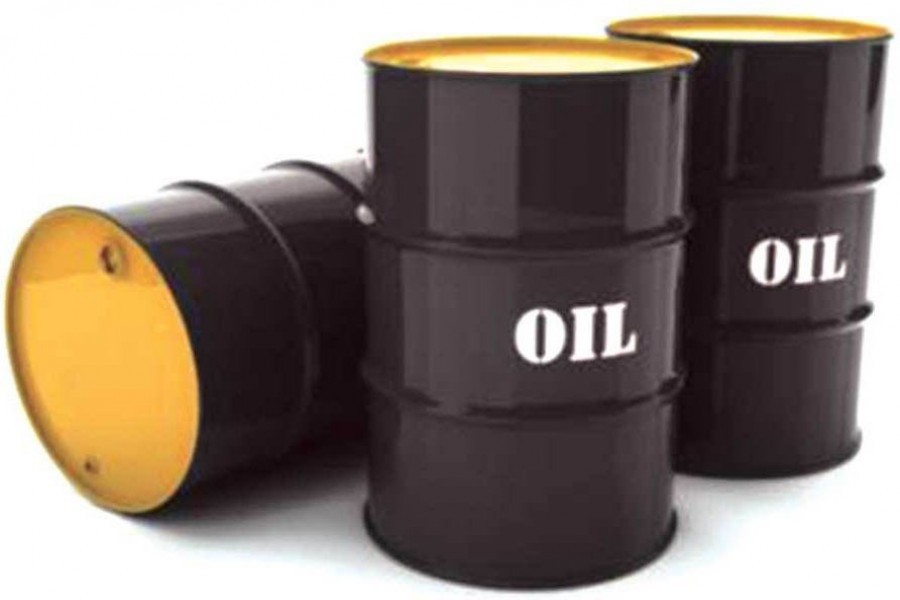The government has increased the import of costly diesel for electricity generation as private sector squeezed import of furnace oil by citing fund crunch and dollar price-settlement dispute, sources say.
The state-run Bangladesh Petroleum Corporation (BPC) has increased the import of diesel as Bangladesh Power Development Board (BPDB) has requested more supply of diesel for power generation, a senior BPC official told the FE Thursday.
Diesel is the most expensive fuel to generate electricity and the tariff rate hovers over Tk 36 per kilowatt hour (one unit) in diesel-fired power plants--double the cost in furnace oil-fired power plant of around Tk 17 per unit and ten times of the cost in gas-fired power plant of around Tk 3.50 per unit, considering the current energy prices, market-insiders say.
"This is unfortunate," energy adviser of the Consumers Association of Bangladesh (CAB) Prof Shamsul Alam said, adding: "It proves that the government has lost control over private sector for power generation."
He says BPC alone should have the responsibility to import all sorts of petroleum products, including furnace oil, from the international market to ensure transparency and accountability on fuel-import costs.
Capacity payments for privately owned power plants should also be cut, he suggests.
Officials said the BPC has increased monthly diesel import by around 100,000 tonnes over the past several months on BPDB's request.
"The BPDB took around 40,000 tonnes -50,000 tonnes of diesel every month during August, September and October last year but this year it sought around 140,000 tonnes -150,000 tonnes in these three months," says one official.
BPC is the sole importer of diesel in Bangladesh. It supplies gasoil to different consumers based on their demands.

"If the private sector continues to squeeze furnace-oil imports, the BPC might have to continue import of higher volumes of gasoil despite high costs," the BPC official fears.
Bangladesh's privately owned power plants have reduced furnace oil due to fund shortage, aggravating the country's power-supply situation, president of Bangladesh Independent Power Producers Association (BIPPA) Imran Karim told the FE.
According to BPDB, electricity generation to the tune of 800MW has been shut in private power plants following furnace-oil shortages recently.
Many private oil-fired power plant owners are facing fund shortage as the BPDB is not paying them regularly to continue electricity generation as per the agreement, Karim said.
Private power-plant owners purchase furnace oil on a free on board (FOB) basis and arrange vessels to import oil into Bangladesh by paying freights and shipping charges on their own. They get back all the costs along with 9% service charge from BPDB.
The private plant owners also get payment additionally for generating electricity. They have been importing furnace oil since 2010 as state-run Bangladesh Petroleum Corporation then expressed its 'inability' to import the fuel for private sector, a senior BPC official said.
Currently, the BPDB owes around Tk 160 billion (around $1.60 billion) to private power-plant owners, he said. "We are importing fuel as much as we can to generate electricity," he adds.
"If we don't get funds immediately, our HSFO imports might dwindle further," Karim warns.
Private furnace-oil importers are also incurring loss in settling US dollars against their imports of the fuel, he said.
To come out of the situation there is no alternatives but to ensure 'true-up payments' in favour of private power-plant owners who import furnace oil of their own, he says.
True-up payment is to reconcile or match the balance of two or more items.
It will be a sort of compensation to the private owners for fluctuations in exchange rates.
Officials say the BPDB is currently also getting the minimum volume of natural gas for power generation due to dwindling natural gas reserves and lowering LNG imports from the suppliers.
Currently, a total of 26 natural gas-fired power plants, with a capacity of around 2,885MW, are totally shut and a few more are running with limited capacity as state-run Petrobangla is able to supply less than half the country's total gas requirement. This equals to around one-fourth of the country's gas-fired power-generation capacity.
State oil and gas company Petrobangla is now able to supply only around 902 million cubic feet per day (mmcfd) of gas against demand of around 2,250 mmcfd, according to its data on October 19.
Bangladesh has halted spot LNG import since July due to high prices and is currently relying only on long-term LNG imports from Qatar's Qatargas and Oman's Oman Trading International, or OQ Trading.
Its overall LNG regasification volume plummeted to the lowest ebb at around 380mmcfd as on October 19 from around 850mmcfd in June.
BPC imports around 5.0 million tonnes of diesel annually to meet domestic demand.


